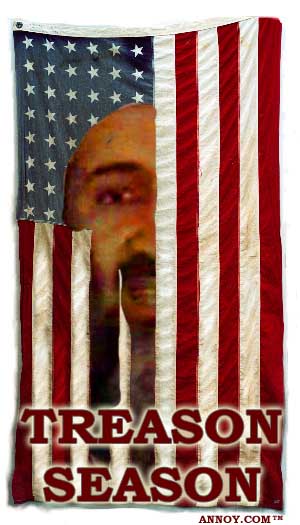 On Sunday June 16, 2002, a senior intelligence analyst with the Diplomatic Security Service in the U.S. Department of State, Dennis Pluchinsky, penned for the Washington Post, a scathing criticism of the American media, essentially accusing journalists and columnists of treason for daring to expose some of the mistakes made by America that allowed an event like September 11 to occur. An indictment for their focus on “alleged intelligence ‘failures’ surrounding the events of Sept. 11.” On Sunday June 16, 2002, a senior intelligence analyst with the Diplomatic Security Service in the U.S. Department of State, Dennis Pluchinsky, penned for the Washington Post, a scathing criticism of the American media, essentially accusing journalists and columnists of treason for daring to expose some of the mistakes made by America that allowed an event like September 11 to occur. An indictment for their focus on “alleged intelligence ‘failures’ surrounding the events of Sept. 11.”
Scorn and derision for sensationalist (if not just plain poor, shoddy and self aggrandizing) reporting is well justified, but that was not Pluchinsky’s beef. Pluchinsky’s column titled, “They Heard It All Here, And That's the Trouble,” offered an astounding host of suggestions to supposedly “remedy” the situation that did little more than make a mockery of due process, justice, accountability and democracy.
Clearly Mr. Pluchinsky has not lived in a country where freedom isn’t so readily available to its citizenry. In a countries where detention without trial is commonplace, or suspicious accidents and uncharacteristic ‘suicides’ frequently befall those who dare voice opposition to systems designed to dehumanize and humiliate people who do not conform to a particular way of thinking or are not born with a particular shade of skin pigmentation.
Mr. Pluchinsky’s fascist fantasy would only be remotely feasible if the government knew exactly what it was doing, was not apt to spend more effort and energy on covering up mistakes and vulnerabilities as opposed to remedying them post haste, and inspired trust and integrity that their efforts were genuinely in the best interests of the people by whose mandate it serves.
Instead of censoring journalists who have the tenacity to delve into issues and expose vulnerabilities that put people at risk, the government would be better served in efficiently and effectively ensuring their remedy rather than taking steps to muzzle the person speaking out. Vulnerabilities in our food supply, electrical grids, chemical plants, trucking industry, ports, borders, airports, special events and cruise ships are far more likely to remain if we criminalize discussing them instead of addressing and fixing them. Why should citizens be forced to make decisions based on inadequate information, the presence of which would significantly altar those decisions? Taking Mr. Pluchinsky’s suggestions to their obvious and logical conclusion would result in the banning of telephone books and the elimination of courtrooms in favor of military tribunals for all citizens.
Pluchinsky laments that articles have pointed out what mistakes the terrorists made and how America failed to pick up on those mistakes. If America’s failure to acknowledge mistakes is the only way to succeed in effectively combating terrorism, we have a far bigger problem than the one Mr. Pluchinsky imagines. To suggest that a terrorist that now has the foresight to buy furniture and pay parking tickets is enough to thwart the intelligent tracking of terrorism is a far more damaging revelation to America’s security than Ashleigh Banfield annoyingly leopard crawling over ruins in Jenin or galloping over hills in Salt Lake City – stomach-turning as it may be.
Pluchinsky’s ridiculous proposal that the ill-defined, powerless, mandate-deficient Department of Homeland Security establish “a program where academicians, reporters, think tankers or any citizen could contact the department and inform them of security vulnerabilities” in return for "’Homeland Security Protective Security’ certificates to individuals or ‘Homeland Security Gold Stars’ to newspaper or Internet sites” is the equivalent of putting yellow stars on the arms of those that refuse to pledge allegiance to the flag, and providing a hit list for terrorists of those that have aided and abetted in their demise.
If accurate information, strategic risk assessment and informed decision making is the result of oversight, evaluation and accountability in a democracy that cherishes freedom of expression at its core, the challenge we face is how to mitigate our risks and limit our exposure through transparent actions, rather than masking them through censorship, smoke, mirrors, puffery and self-delusion. Anything less, Mr. Pluchinsky, is worthy of “an ‘Osama bin Laden’ award given out by al Qaeda”. With insights like this permeating the State Department, one can only shudder at what contributions they’re making abroad in their global support of democracy and freedom. |


